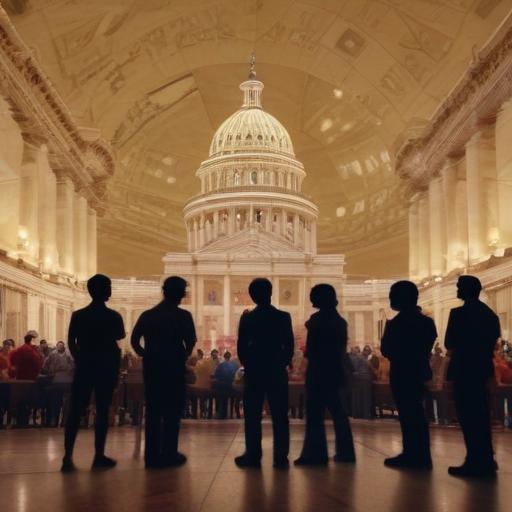The Texas House of Representatives faced another setback this week as it failed to achieve quorum for the third time, primarily due to the absence of Democratic lawmakers who are actively avoiding participation in the redistricting process led by the Republican majority. House Speaker Dustin Burrows announced plans to reconvene on Monday, intensifying efforts to enforce civil arrest warrants for those Democrats who have fled to Illinois.
In a move designed to penalize absent members, Burrows stated that 30% of each absent legislator’s operational budget would be frozen. Additionally, he indicated that any requests requiring in-person attendance, such as travel reimbursements and staff salary changes, would now have stricter enforcement. This follows a policy change that halted direct deposit payments, compelling absent lawmakers to retrieve their salaries in person in Austin.
Despite the challenges, Democrats remain resolute. State Representative Ramon Romero Jr. affirmed their determination to resist the Republicans’ aggressive redistricting efforts. The financial implications of breaking quorum are serious, with lawmakers facing $500 fines for each day of absence and a monthly stipend of only $600 before taxes, as noted by State Representative James Talarico.
The situation has also prompted concerns about the treatment of absent lawmakers. Representative Claudia Ordaz shared that she was approached by Department of Public Safety officers at her relative’s home despite previously disclosing her absence was due to health issues. She criticized the visit as an “abuse of power” intended to intimidate.
As the standoff continues, the political landscape in Texas remains charged, with significant implications for upcoming congressional maps and the broader political climate. This disagreement highlights the challenging dynamics between the parties in the state and reflects an ongoing struggle around representation and legislative power. The resolution of these issues may not only affect Texas but could also resonate within national trends regarding redistricting and political maneuvering.
